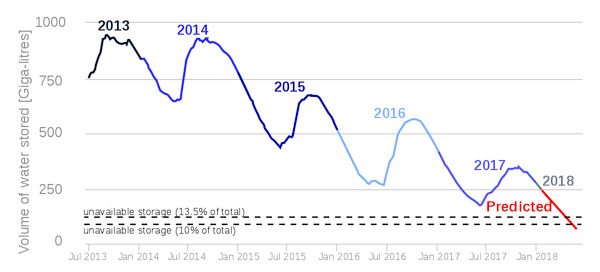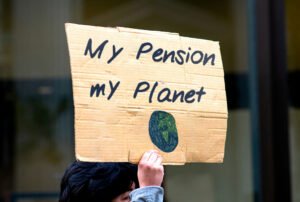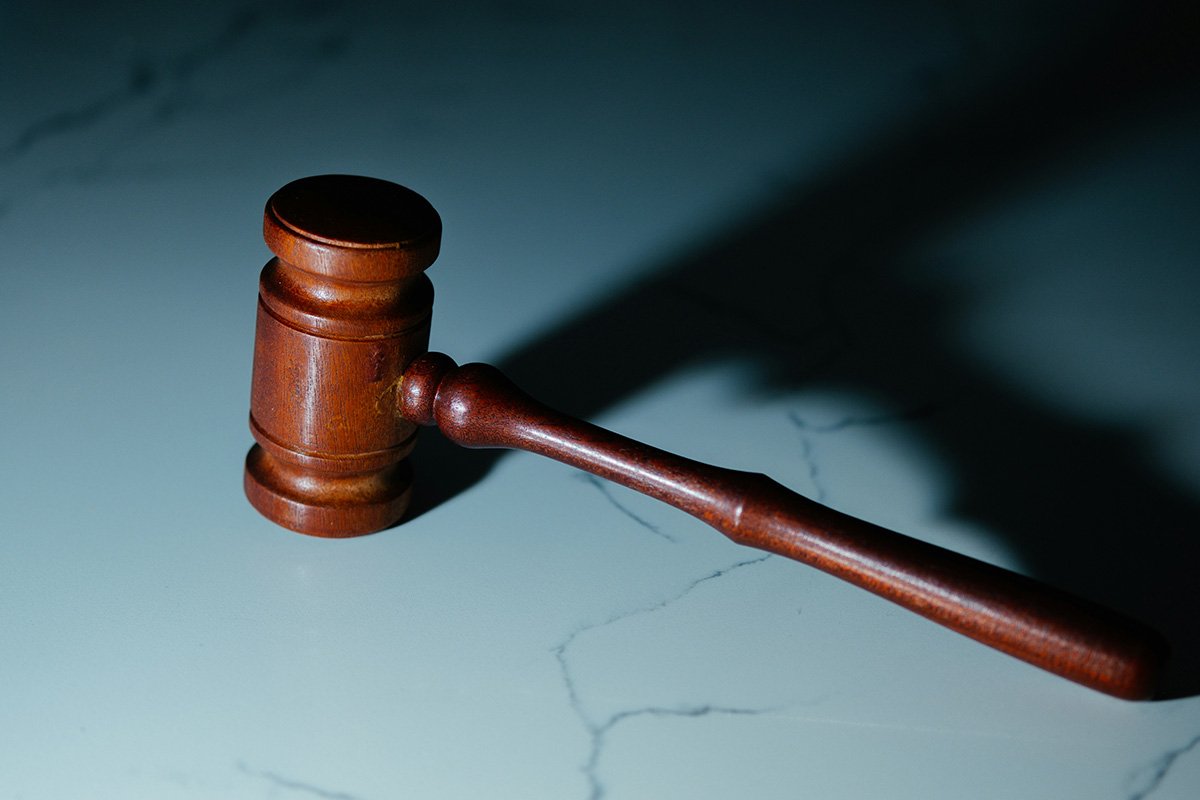
February 20, 2018, New York Times
“Day Zero” for the drought-stricken city of Cape Town—the date upon which running water service will cease—has been moved from late April to July 9th, thanks to widely embraced conservation efforts. The world’s first major city in modern times to face such a threat proclaims that the crisis might be averted…if its four million residents continue to conserve water. Families risk paying taxes and fines if they do not adhere to the city’s Critical Water Shortages Disaster Plan.
Cape Town has cut its water consumption to 523 million liters a day—about 139 million gallons, and less than half of what it was four years ago, before the drought began. Farmers in Western Cape Province have also diverted enough water to supply the city, South Africa’s second largest, for 19 days at the current rate.
As a result, the city may reach the Southern Hemisphere winter, which begins in June, without taps going dry. But there is no guarantee that the season will bring the usual rainfall, and the reservoirs behind the city’s dams are at just 24 percent of capacity, and still falling.
Starting with the city website offering many aids, such as a Day Zero Dashboard and a Water Calculator, conservation initiatives are in full bloom. Officials are currently limiting citizens to 13 gallons of water a day (enough for a six-minute shower), about a quarter of the daily water usage in the US. Day Zero is defined as dam levels reaching 13.5 percent. If that occurs, Cape Town will establish water collection sites where the public can receive seven gallons of water per day, free of charge.
Sign up for our free newsletters
Subscribe to NPQ's newsletters to have our top stories delivered directly to your inbox.
By signing up, you agree to our privacy policy and terms of use, and to receive messages from NPQ and our partners.
In addition to the city working to bring three desalination plants online, Cape Town’s nonprofits and entrepreneurs are offering more solutions. Mvula Trust is the largest South African NGO supporting water and sanitation development. The nonprofit Water Institute of South Africa (WISA) is calling for volunteers to donate time, empty bottles, and other support. Water 4 Cape Town is an online platform for water conservation news and resources. The water crisis touches everyone. Here is a list of all the NGOs working in Cape Town.
I-Drop Water’s purification system offers grocery stores an affordable way to reach the most people with drinking water. Greenchain Engineering provides rain-harvesting systems and improves the management of non-drinkable “gray water.” Warka Water provides communities with “fog catchers” made of intricate fabric that trap condensation from post-rain humidity or morning mist and channel it into a container. Disrupt Africa just produced a two-day Hackathon in which participants pitched their ideas, formed teams, and created prototypes under the guidance of corporate sponsors. The winning team created Tiny Loop, a battery-operated shower that uses less water. Bridgiot’s Dropula is a “smart water” meter that enables users such as schools to track water consumption and detect leaks. This led to a corporate Smart Water Meter Challenge by which sponsors are sought to equip Cape Town schools with Dropula meters. Faith groups are teaching their congregants water conservation solutions. A grassroots campaign to donate water to Cape Town residents begun on WhatsApp went viral in less than a week.
Imtiaz Sooliman, chairman of Gift of the Givers, told CNN the overall water collection across South Africa topped 50,000 five-liter bottles, and donations are starting to come from abroad, including the US.
“But this is just the tip of the iceberg. Every day the campaign is getting bigger and bigger. We have more than 70 distribution points. And we’re preparing to look at providing trains to transport water across the country.”
Even if Cape Town averts the water crisis for now, climate change and other issues will continue to test the resolve and resilience of Cape Town’s civil society.—Jim Schaffer











